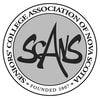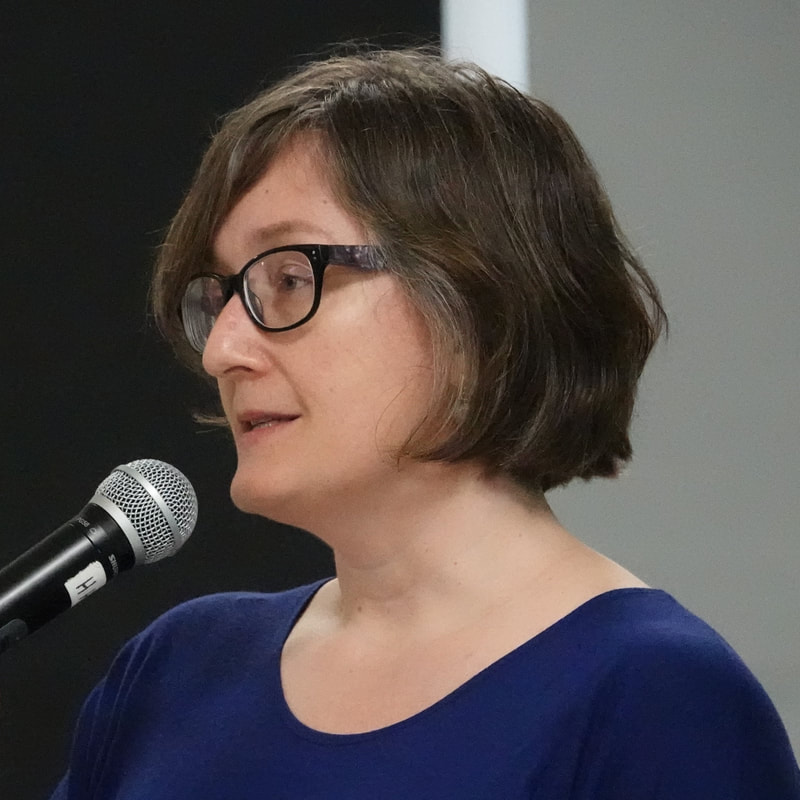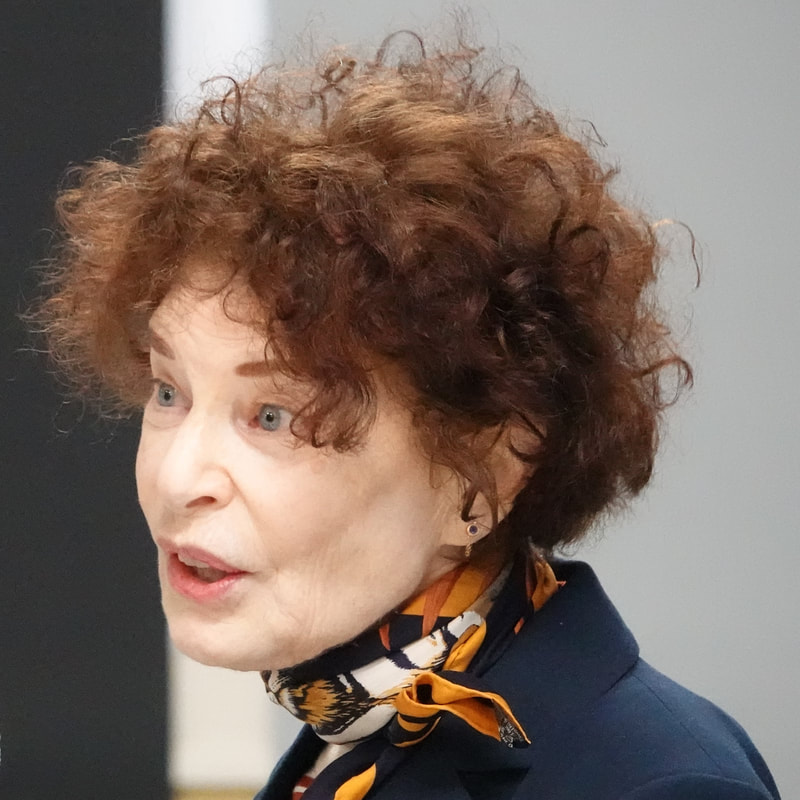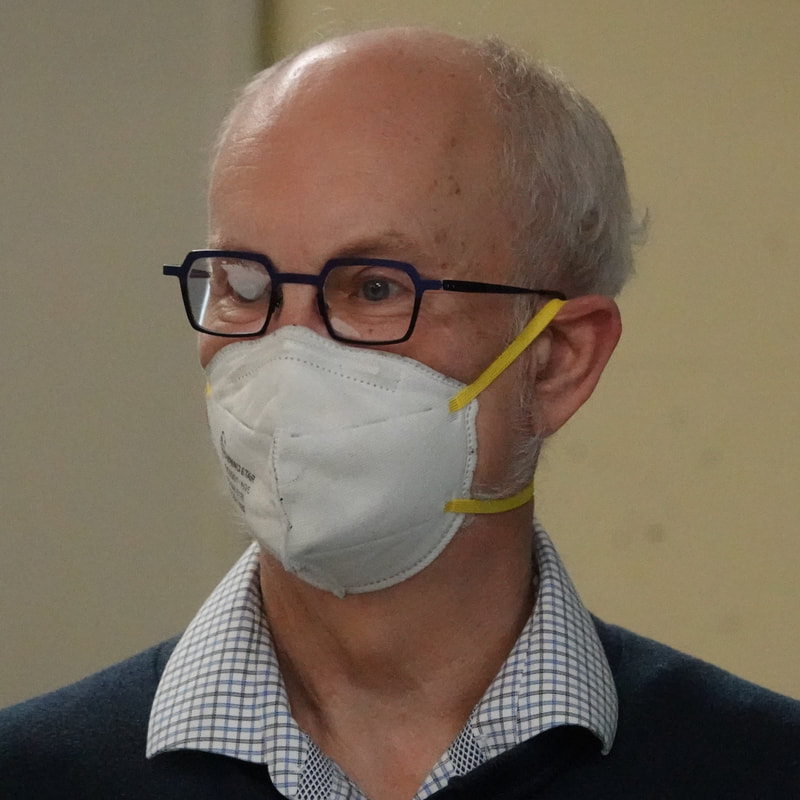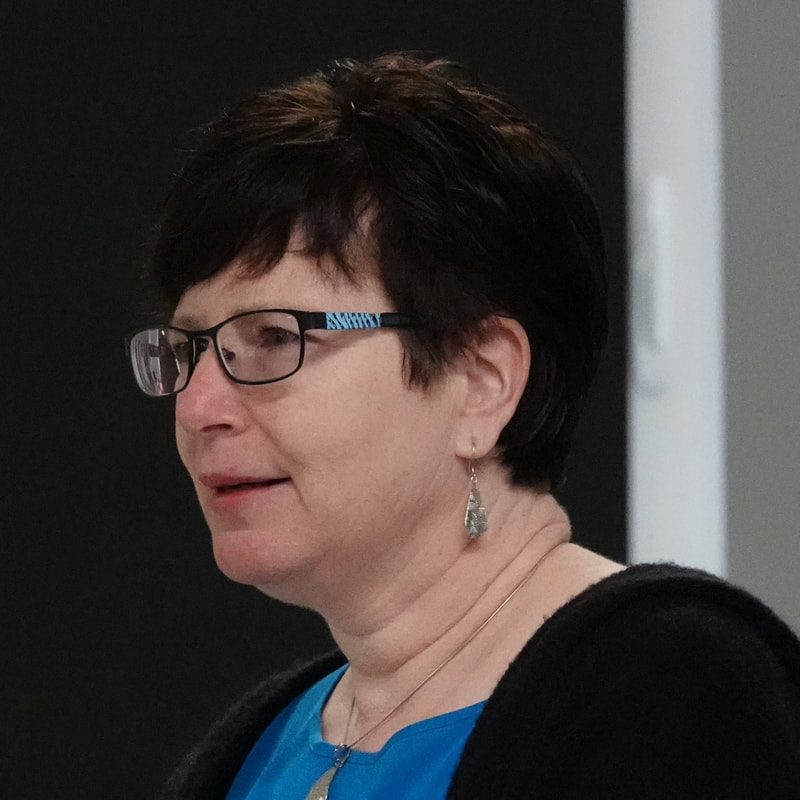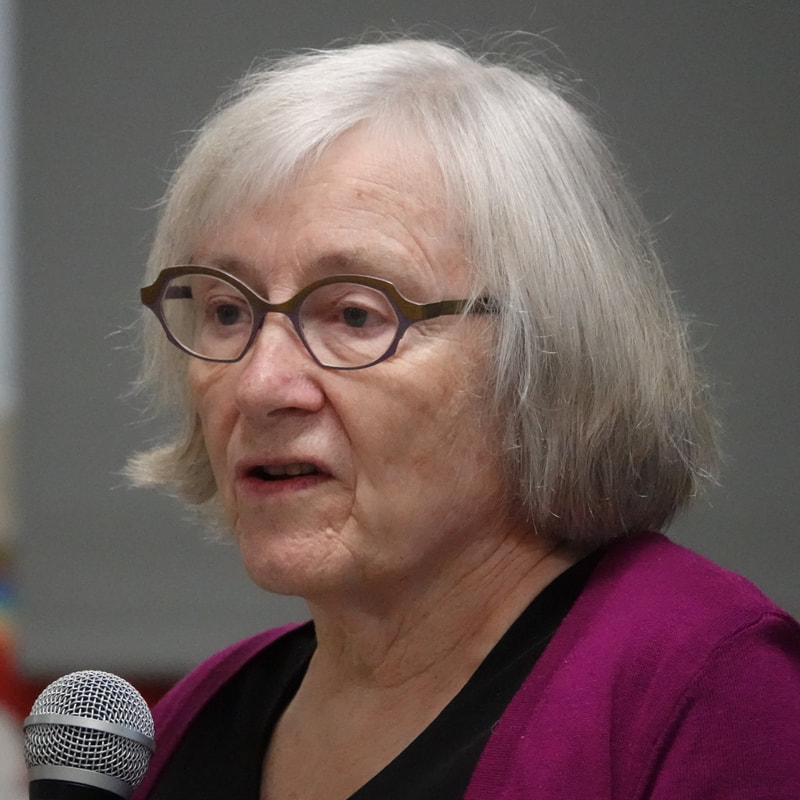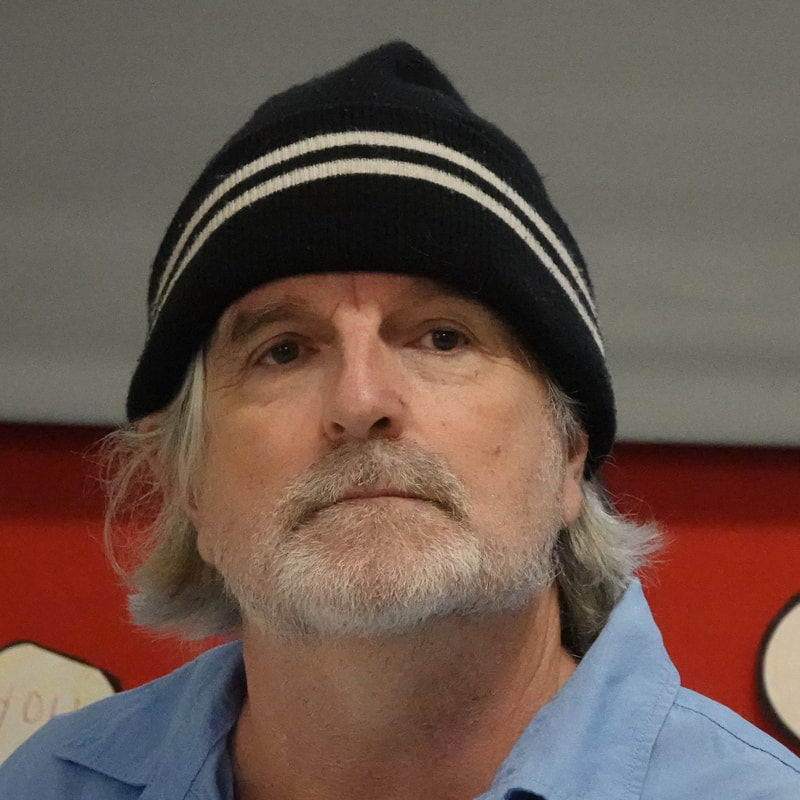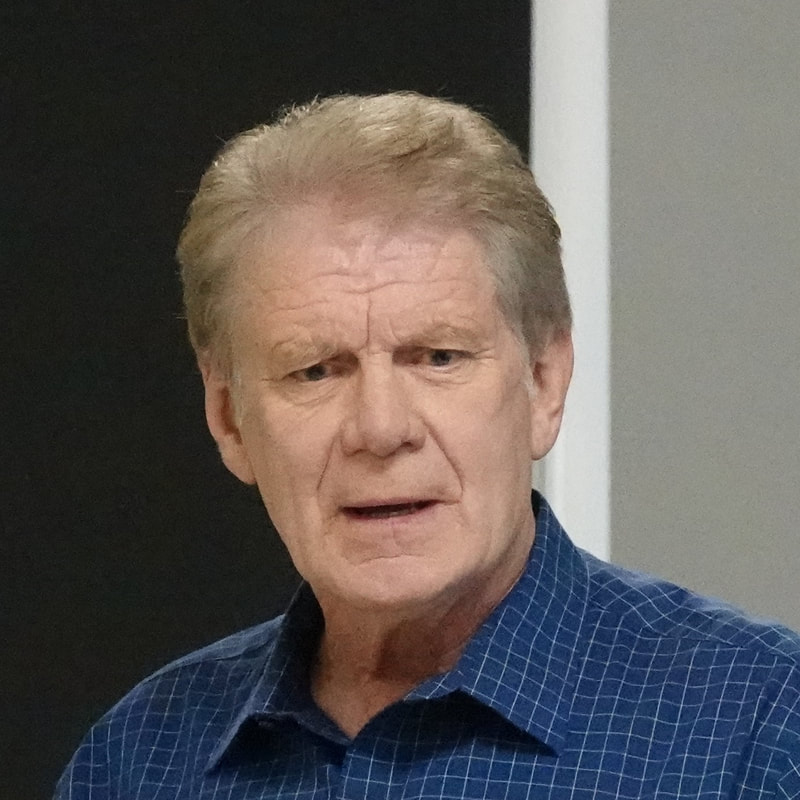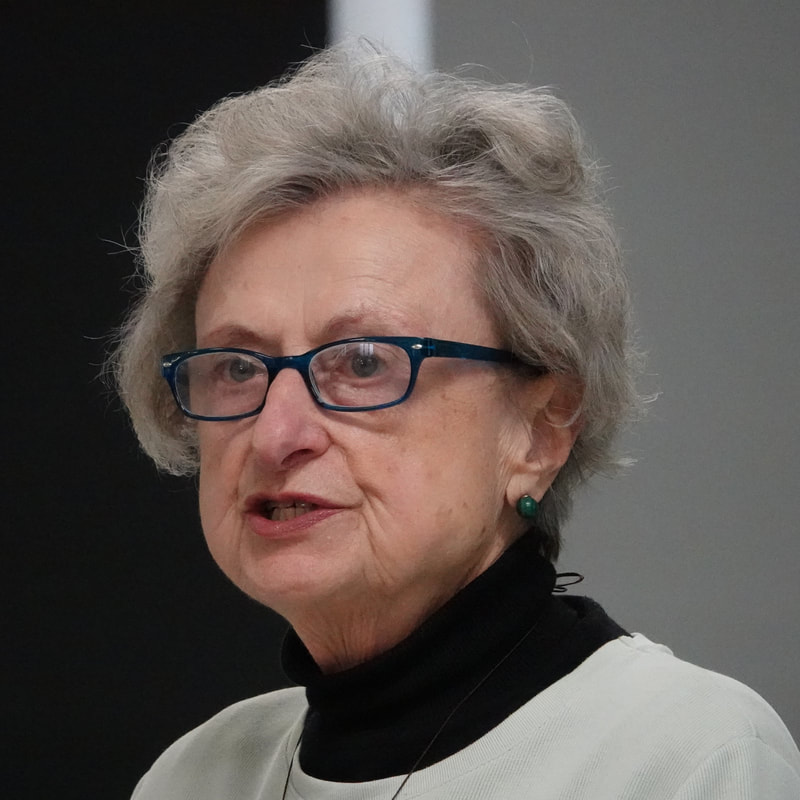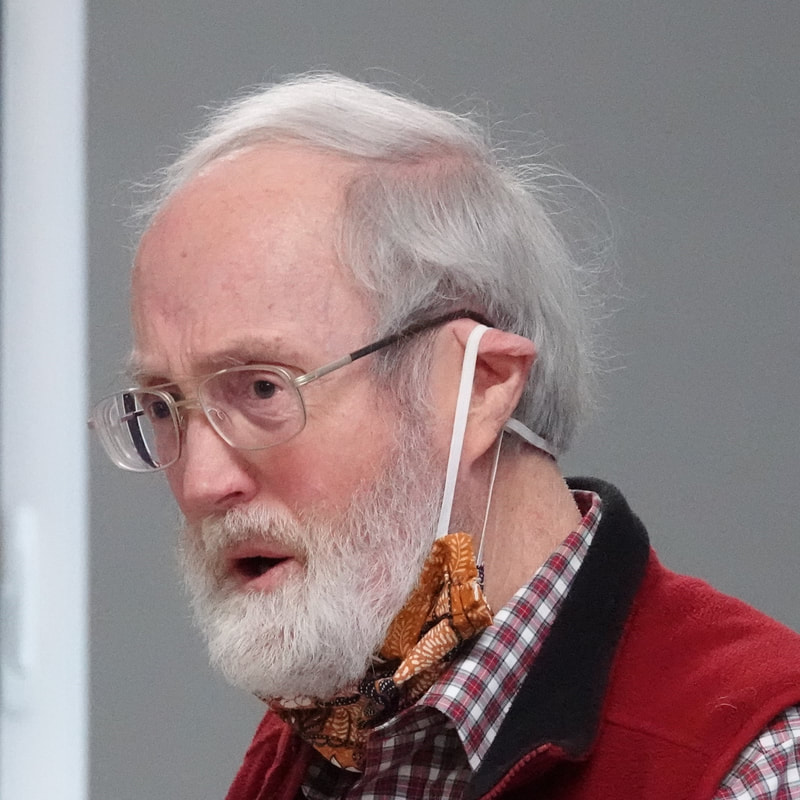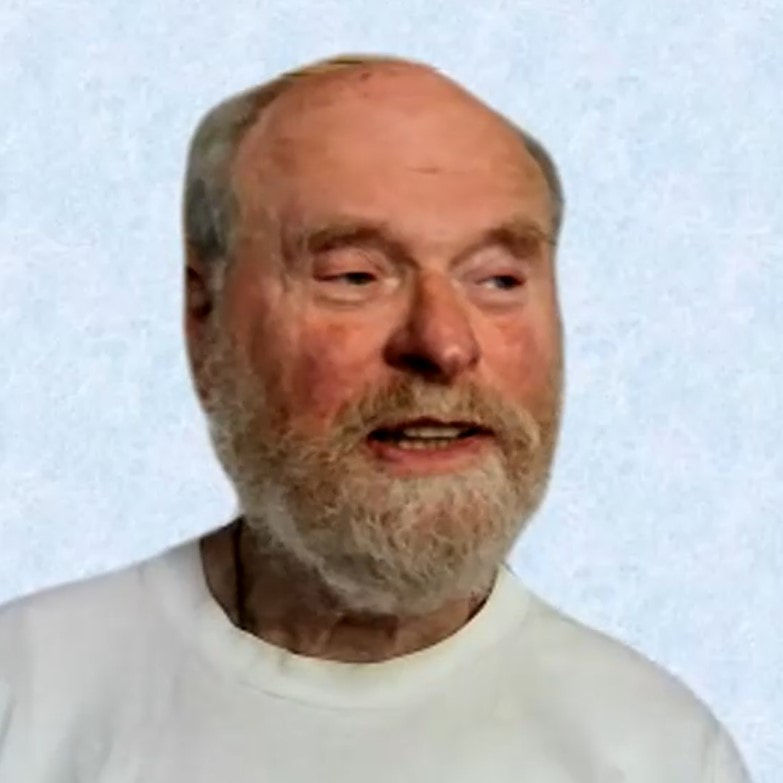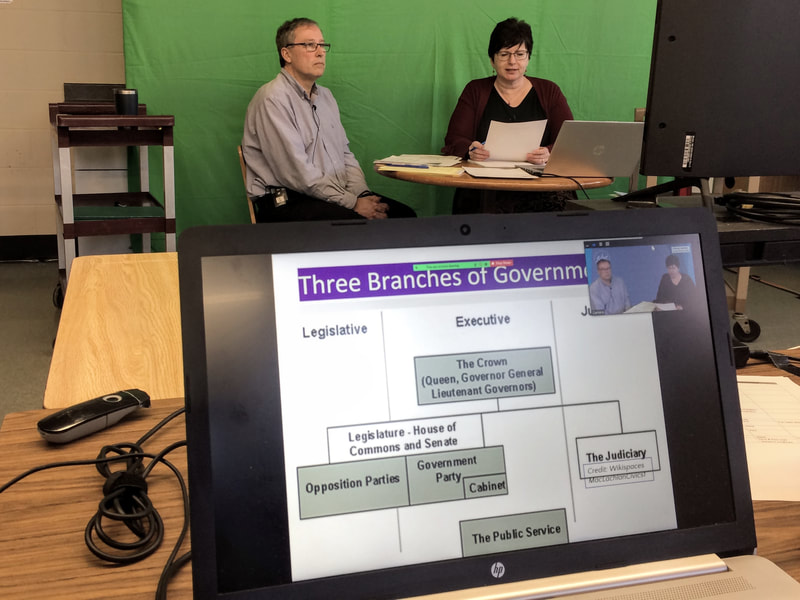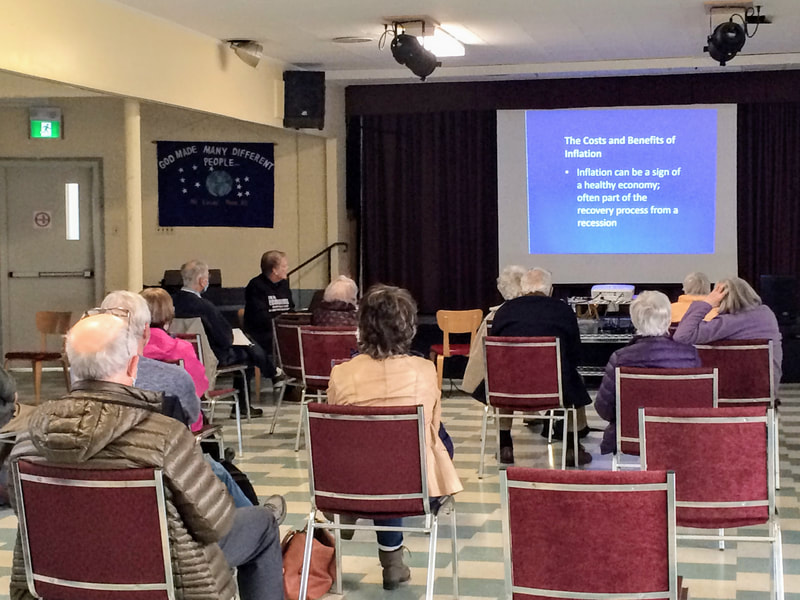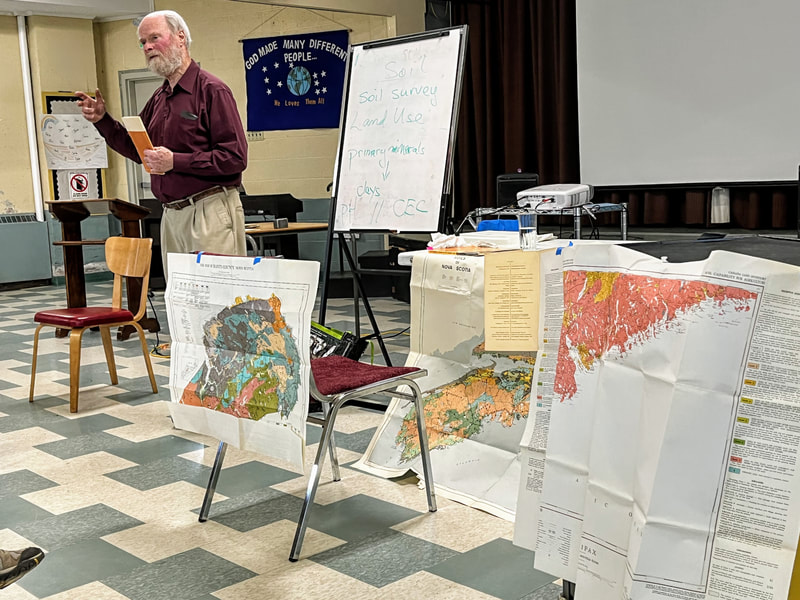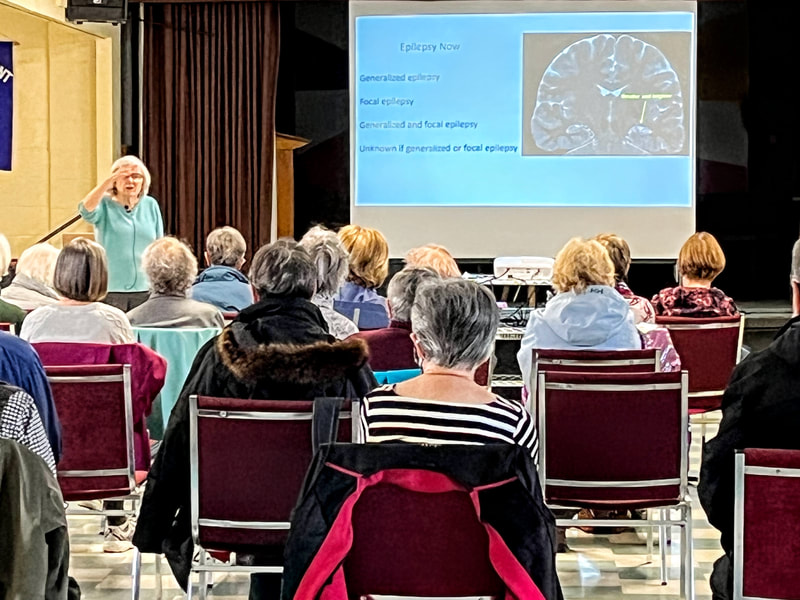Please note that not all classes start on the same week just after Easter
All-Chapters Classes
1. TOPICS in Canadian BioethIcs - Amanda Porter (coordinator)
Topics in Canadian Bioethics - Amanda Porter (Coordinator)*
Tuesdays 10:00 AM-12:00 PM (6 wks) Apr 19 to May 24
* Online class presented as Zoom webinar; video recording posted to YouTube after each session
Course Description
This six-week, online course will explore topics in Canadian bioethics including health care decision-making, public health ethics, hope, medical assistance in dying, living at risk and Canada’s health care system. Each session will be guided by a different member of Dalhousie’s Department of Bioethics and will involve both a presentation and facilitated, thoughtful discussion..
Instructor Biographies
Tuesdays 10:00 AM-12:00 PM (6 wks) Apr 19 to May 24
* Online class presented as Zoom webinar; video recording posted to YouTube after each session
Course Description
This six-week, online course will explore topics in Canadian bioethics including health care decision-making, public health ethics, hope, medical assistance in dying, living at risk and Canada’s health care system. Each session will be guided by a different member of Dalhousie’s Department of Bioethics and will involve both a presentation and facilitated, thoughtful discussion..
Instructor Biographies
2. Introduction to Family Law in Nova Scotia - Christine Carter (coordinator)
Introduction to Family Law in Nova Scotia - Christine Carter (coordinator)*
Wednesdays 1:30 PM-3:30 PM (6 wks) Apr 20 to May 25
* Online class presented as Zoom webinar; video recording posted to YouTube after each session
Course Description
The family justice system has been substantially modernized over the last 25 years. Most family laws have been replaced or updated, courts delivering family justice have been unified and many programs and services have been introduced or significantly enhanced. This course is meant to be of practical application to participants to learn how family justice is delivered in Nova Scotia. It will not provide legal advice, but it will provide legal information about key family law-related concepts and terminology, important areas of family law, such as parenting, support, divorce, and property division and the variety of services and programs available to assist families. Measures that have been taken to streamline services and processes and changes that make family justice more accessible and affordable will also be discussed. Commonly held myths will be de-bunked wherever possible. The course will be delivered by family law professionals and experts over 6 x 2-hour sessions.
Instructor Biographies
Diane Hawco (B.S.W., LL.B.) is a family law consultant, social worker, lawyer and certified Ombudsperson who worked for over 10 years as a Conciliator and Program Specialist at the Supreme Court (Family Division). Diane also has experience in working with Victims of Crime and working to ensure administrative fairness in post-secondary decision making.
Kendra Hillier (P.Eng.) Kendra has over 17 years of experience in the private sector. Through her work experience, she became a certified Black Belt in Lean Six Sigma, leading process and change initiatives. Kendra joined the Maintenance Enforcement Program in 2018 as an Organizational Development Manager and is now the Senior Manager of the Program.
Stacey O’Neill (B. Comm., LL.B.) is a Coordinator of Policy & Compliance with Court Services at the NS Department of Justice and manages a variety of provincial family law programs and services. Prior to her current role, Stacey worked as a family law lawyer, municipal lawyer, and Conciliator at the Supreme Court, Family Division, in Halifax.
Pamela Morrison (B.S.W.) is retired and also acts as the part-time Provincial Coordinator for the Parent Information and Supervised Access and Exchange Programs for the NS Department of Justice. She previously worked as a Supervisor of Court Administration, a Senior Court Officer providing Intake, Conciliation and Program Specialist with the Family Court of NS. Pam has also worked with the Mentally Challenged, in Senior’s Outreach and at Women’s Shelters.
Paul Stordy (B.BA., LL.B) is a senior lawyer with Nova Scotia Legal Aid. He acts as the Summary Advice Counsel at the Supreme Court, Family Division in Halifax, and is the Provincial Manager of Information Services and Summary Advice for all 12 court sites in NS. He previously provided conciliation services at the Supreme Court Family Division.
Christine Carter (B.A., LL.B) is retired from the NS Department of Justice and was Acting Director of Court Services (Family Law), a Coordinator of Policy and Compliance with Court Services, a Conciliator and Program Specialist at the Supreme Court, Family Division, a family law lawyer with Nova Scotia Legal Aid and a lawyer in private practice.
Wednesdays 1:30 PM-3:30 PM (6 wks) Apr 20 to May 25
* Online class presented as Zoom webinar; video recording posted to YouTube after each session
Course Description
The family justice system has been substantially modernized over the last 25 years. Most family laws have been replaced or updated, courts delivering family justice have been unified and many programs and services have been introduced or significantly enhanced. This course is meant to be of practical application to participants to learn how family justice is delivered in Nova Scotia. It will not provide legal advice, but it will provide legal information about key family law-related concepts and terminology, important areas of family law, such as parenting, support, divorce, and property division and the variety of services and programs available to assist families. Measures that have been taken to streamline services and processes and changes that make family justice more accessible and affordable will also be discussed. Commonly held myths will be de-bunked wherever possible. The course will be delivered by family law professionals and experts over 6 x 2-hour sessions.
Instructor Biographies
Diane Hawco (B.S.W., LL.B.) is a family law consultant, social worker, lawyer and certified Ombudsperson who worked for over 10 years as a Conciliator and Program Specialist at the Supreme Court (Family Division). Diane also has experience in working with Victims of Crime and working to ensure administrative fairness in post-secondary decision making.
Kendra Hillier (P.Eng.) Kendra has over 17 years of experience in the private sector. Through her work experience, she became a certified Black Belt in Lean Six Sigma, leading process and change initiatives. Kendra joined the Maintenance Enforcement Program in 2018 as an Organizational Development Manager and is now the Senior Manager of the Program.
Stacey O’Neill (B. Comm., LL.B.) is a Coordinator of Policy & Compliance with Court Services at the NS Department of Justice and manages a variety of provincial family law programs and services. Prior to her current role, Stacey worked as a family law lawyer, municipal lawyer, and Conciliator at the Supreme Court, Family Division, in Halifax.
Pamela Morrison (B.S.W.) is retired and also acts as the part-time Provincial Coordinator for the Parent Information and Supervised Access and Exchange Programs for the NS Department of Justice. She previously worked as a Supervisor of Court Administration, a Senior Court Officer providing Intake, Conciliation and Program Specialist with the Family Court of NS. Pam has also worked with the Mentally Challenged, in Senior’s Outreach and at Women’s Shelters.
Paul Stordy (B.BA., LL.B) is a senior lawyer with Nova Scotia Legal Aid. He acts as the Summary Advice Counsel at the Supreme Court, Family Division in Halifax, and is the Provincial Manager of Information Services and Summary Advice for all 12 court sites in NS. He previously provided conciliation services at the Supreme Court Family Division.
Christine Carter (B.A., LL.B) is retired from the NS Department of Justice and was Acting Director of Court Services (Family Law), a Coordinator of Policy and Compliance with Court Services, a Conciliator and Program Specialist at the Supreme Court, Family Division, a family law lawyer with Nova Scotia Legal Aid and a lawyer in private practice.
HRM classes
3. A Study of E.M.Forster’s “Howards End” and Kazuo Ishiguro’s “The Remains of the Day”: the idea of home - Victoria Rosenberg
A Study of E.M.Forster’s “Howards End” and Kazuo Ishiguro’s “The Remains of the Day”: the idea of home - Victoria Rosenberg
Tuesdays 1:30 PM-3:30 PM (6 wks) Apr 19 to May 24
Hoyt Room - Hope United Church, 3055 Connaught Avenue, Halifax
Course Description
Home has been for most of us in these past two years, a place of contradictions – a place of both safety and imprisonment. Our concern, in this class, is not with the particular home that is the setting and fulcrum of each novel. Rather, we will explore the idea of safety, what it means to the central character of each novel, and how sanctuary and restriction can merge into one another. The novels in this way chart opposite patterns: in the Forster, the main character’s sense of restriction grows into an active seeking of sanctuary, whereas, in the Ishiguro, safety is finally recognized as a blindness that cripples perception and action.
Instructor Biography
Dr. Rosenberg’s area of specialty is the writing of Henry James; her interest is the idea of intelligent consciousness that James explored in his late novels. Her lectures and study concentrate on the Victorian and Edwardian English novel, and accordingly, this course is somewhat of a departure from her previous classes, for although “Howards End” was published in 1910, “The Remains of the Day” is a late 20th c. novel, published in 1988.
Tuesdays 1:30 PM-3:30 PM (6 wks) Apr 19 to May 24
Hoyt Room - Hope United Church, 3055 Connaught Avenue, Halifax
Course Description
Home has been for most of us in these past two years, a place of contradictions – a place of both safety and imprisonment. Our concern, in this class, is not with the particular home that is the setting and fulcrum of each novel. Rather, we will explore the idea of safety, what it means to the central character of each novel, and how sanctuary and restriction can merge into one another. The novels in this way chart opposite patterns: in the Forster, the main character’s sense of restriction grows into an active seeking of sanctuary, whereas, in the Ishiguro, safety is finally recognized as a blindness that cripples perception and action.
Instructor Biography
Dr. Rosenberg’s area of specialty is the writing of Henry James; her interest is the idea of intelligent consciousness that James explored in his late novels. Her lectures and study concentrate on the Victorian and Edwardian English novel, and accordingly, this course is somewhat of a departure from her previous classes, for although “Howards End” was published in 1910, “The Remains of the Day” is a late 20th c. novel, published in 1988.
4. Physiotherapy: Muscles, Bones, and So Much More - Marianne Beaton
Physiotherapy: Muscles, Bones, and So Much More - Marianne Beaton
Tuesdays 1:30 PM-3:30 PM (6 wks) Apr 19 to May 24
Church Hall - Hope United Church, 3055 Connaught Avenue, Halifax
Course Description
This course will provide a detailed overview of physiotherapy practice today, including roles, procedures, training, specialties, and examination techniques. Typical types of conditions and cases seen by physiotherapists will be reviewed and discussed using an interactive audience approach, anatomical models, and “real-life” discussion. Areas of practice will include hospital, clinics, community, rehabilitation centres and other emerging roles. Active audience participation and questions will be encouraged.
Instructor Biography
Marianne Beaton has worked as a clinical physiotherapist in a myriad of roles and practices for close to 40 years. She is a graduate of Dalhousie University for both her Bachelor of Science in Physiotherapy and her Masters of Health Administration. Her many practice changes have given her a wide breadth of experience in multiple roles, including some policy and program planning adventures at the provincial government level. Marianne has a love of ongoing education and learning. She lives in Mahone Bay with her husband and family, a friendly golden retriever, and a very mischievous little kitten.
Tuesdays 1:30 PM-3:30 PM (6 wks) Apr 19 to May 24
Church Hall - Hope United Church, 3055 Connaught Avenue, Halifax
Course Description
This course will provide a detailed overview of physiotherapy practice today, including roles, procedures, training, specialties, and examination techniques. Typical types of conditions and cases seen by physiotherapists will be reviewed and discussed using an interactive audience approach, anatomical models, and “real-life” discussion. Areas of practice will include hospital, clinics, community, rehabilitation centres and other emerging roles. Active audience participation and questions will be encouraged.
Instructor Biography
Marianne Beaton has worked as a clinical physiotherapist in a myriad of roles and practices for close to 40 years. She is a graduate of Dalhousie University for both her Bachelor of Science in Physiotherapy and her Masters of Health Administration. Her many practice changes have given her a wide breadth of experience in multiple roles, including some policy and program planning adventures at the provincial government level. Marianne has a love of ongoing education and learning. She lives in Mahone Bay with her husband and family, a friendly golden retriever, and a very mischievous little kitten.
5. The History of Secret Messages - Tony Schellinck
The History of Secret Messages - Tony Schellinck
Wednesdays 10:00 AM - 12:00 PM (6 wks) Apr 27 to Jun 01
Church Hall - Hope United Church, 3055 Connaught Avenue, Halifax
Course Description
This course covers the history of the science of secret messages. From ancient times, the course of history was changed when unbreakable codes were developed, only to eventually be broken by code breakers. This course will delve into the events, personalities and cyphers that changed the course of history. The battle between cryptographers and cryptanalysts rages on today with significant implications for the safety and privacy of the average citizen. Participants will have the opportunity to become amateur cryptanalysts as well as code writers. This is a class for wordies, puzzle solvers and history buffs.
Instructor Biography
Tony Schellinck, PhD, was repeatedly cited for excellent teaching over his forty years as a university instructor. He received the Financial Post (national) Leader in Management Education award, as well as receiving the A. Gordon Archibald Teaching Excellence Award. This will be the eleventh senior’s college course taught by Tony and the fourth topic covered. He has always had an interest in history and most history books cover politics, power struggles among the elite, and wars/battles. Sending coded messages played a role in the outcome of many of these conflicts. Tony felt this course would be timely for, though cryptology played an important role throughout history, it is even more important in the information age. Any individual’s messages can be phished out of the ethernet, collected over time, analysed, and used to target that person with a tailored scam. Encrypting your messages and information has never been more important.
Wednesdays 10:00 AM - 12:00 PM (6 wks) Apr 27 to Jun 01
Church Hall - Hope United Church, 3055 Connaught Avenue, Halifax
Course Description
This course covers the history of the science of secret messages. From ancient times, the course of history was changed when unbreakable codes were developed, only to eventually be broken by code breakers. This course will delve into the events, personalities and cyphers that changed the course of history. The battle between cryptographers and cryptanalysts rages on today with significant implications for the safety and privacy of the average citizen. Participants will have the opportunity to become amateur cryptanalysts as well as code writers. This is a class for wordies, puzzle solvers and history buffs.
Instructor Biography
Tony Schellinck, PhD, was repeatedly cited for excellent teaching over his forty years as a university instructor. He received the Financial Post (national) Leader in Management Education award, as well as receiving the A. Gordon Archibald Teaching Excellence Award. This will be the eleventh senior’s college course taught by Tony and the fourth topic covered. He has always had an interest in history and most history books cover politics, power struggles among the elite, and wars/battles. Sending coded messages played a role in the outcome of many of these conflicts. Tony felt this course would be timely for, though cryptology played an important role throughout history, it is even more important in the information age. Any individual’s messages can be phished out of the ethernet, collected over time, analysed, and used to target that person with a tailored scam. Encrypting your messages and information has never been more important.
6. You and Your Brain: A Neuroscience Primer - Heather Schellinck
You and Your Brain: A Neuroscience Primer - Heather Schellinck
Thursdays 10:00 AM - 12:00 PM (6 wks) Apr 28 to Jun 02
Church Hall - Hope United Church, 3055 Connaught Avenue, Halifax
Course Description
Members of the public frequently see or hear media reports describing how the brain affects behaviour; yet it is not always easy to know if this information is accurate. The material presented in this course will provide you with the basis for thinking more critically about such facts and figures. I will focus on topics such as the following: cell to cell communication in the nervous system, how drugs work in the brain, understanding our sense of smell, and various aspects of memory and cognition.
Instructor Biography
Heather (MacIntosh) Schellinck is a native of Pictou County who has lived in Halifax for many years. She received a PhD in Experimental Psychology from Dalhousie University in 1995 and subsequently completed a Canadian government funded postdoctoral fellowship at the Sub-Department of Animal Behaviour, University of Cambridge, U.K. She worked at the Department of Psychology and Neuroscience at Dalhousie from 1997-2013. During that time, she taught several undergraduate courses and coordinated an introductory psychology class of one thousand students. She also had an active research career and along with her many wonderful students maintained a behavioural neuroscience lab devoted to understanding olfactory memory in rodent models of human disorders.
Thursdays 10:00 AM - 12:00 PM (6 wks) Apr 28 to Jun 02
Church Hall - Hope United Church, 3055 Connaught Avenue, Halifax
Course Description
Members of the public frequently see or hear media reports describing how the brain affects behaviour; yet it is not always easy to know if this information is accurate. The material presented in this course will provide you with the basis for thinking more critically about such facts and figures. I will focus on topics such as the following: cell to cell communication in the nervous system, how drugs work in the brain, understanding our sense of smell, and various aspects of memory and cognition.
Instructor Biography
Heather (MacIntosh) Schellinck is a native of Pictou County who has lived in Halifax for many years. She received a PhD in Experimental Psychology from Dalhousie University in 1995 and subsequently completed a Canadian government funded postdoctoral fellowship at the Sub-Department of Animal Behaviour, University of Cambridge, U.K. She worked at the Department of Psychology and Neuroscience at Dalhousie from 1997-2013. During that time, she taught several undergraduate courses and coordinated an introductory psychology class of one thousand students. She also had an active research career and along with her many wonderful students maintained a behavioural neuroscience lab devoted to understanding olfactory memory in rodent models of human disorders.
7. Page to Screen: Aspects of Literary Film Adaptation, The English Patient and Cabaret - Glenn Walton
Page to Screen: Aspects of Literary Film Adaptation, The English Patient and Cabaret - Glenn Walton
Thursdays 9:30 AM - 12:30 PM (6 wks) Apr 21 to May 26
The Berkeley, 6240 Pepperell St, Halifax
Course Description
This class will study the film adaptations of two novels (Michael Ondaatje'sThe English Patient and Christopher Isherwood’s Goodbye to Berlin [Cabaret]) and one short story (Alice Munro’s “Boys and Girls”). Among the questions to be explored: How does film structure differ from a novel’s? and How are a novel’s themes translated into film language? Participants aren’t required to read the source materials, but it would help.
Instructor Biography
Glenn Walton is an award-winning filmmaker, journalist, musician and teacher. His first film, The Room at the Back, won the Best Short Film award at the Atlantic Film Festival in 1990, and his latest, Chamberpiece, won the Best Actor Award at the same festival. In 2002-04 Glenn wrote a popular column for The Daily News, and as musician he has recently composed and produced the CD soundtrack to his play If I Were a Blackbird. He is presently writing a musical staging of his favourite children’s book, The Wind in the Willows. Professor Glenn spends much of his free time teaching English Literature at Saint Mary’s University, a job he enjoys more and more each year.
Thursdays 9:30 AM - 12:30 PM (6 wks) Apr 21 to May 26
The Berkeley, 6240 Pepperell St, Halifax
Course Description
This class will study the film adaptations of two novels (Michael Ondaatje'sThe English Patient and Christopher Isherwood’s Goodbye to Berlin [Cabaret]) and one short story (Alice Munro’s “Boys and Girls”). Among the questions to be explored: How does film structure differ from a novel’s? and How are a novel’s themes translated into film language? Participants aren’t required to read the source materials, but it would help.
Instructor Biography
Glenn Walton is an award-winning filmmaker, journalist, musician and teacher. His first film, The Room at the Back, won the Best Short Film award at the Atlantic Film Festival in 1990, and his latest, Chamberpiece, won the Best Actor Award at the same festival. In 2002-04 Glenn wrote a popular column for The Daily News, and as musician he has recently composed and produced the CD soundtrack to his play If I Were a Blackbird. He is presently writing a musical staging of his favourite children’s book, The Wind in the Willows. Professor Glenn spends much of his free time teaching English Literature at Saint Mary’s University, a job he enjoys more and more each year.
8. How to Talk Back to an Economist: Updated Pandemic Version - Alex Roberts
How to Talk Back to an Economist: Updated Pandemic Version - Alex Roberts
Thursdays 1:30 PM- 3:30 PM (6 wks) Apr 14 to May 19
Church Hall - Hope United Church, 3055 Connaught Avenue, Halifax
Course Description
“It is said that the prospect of hanging concentrates the intellect…the reality of a pandemic concentrates it on economics” – Deirdre McCloskey (Economist)
The subtle, arcane, (but not so dismal) science of economics affects each one of us daily - be it the rising cost of groceries, our investment decisions, evaluating the policies of our political leaders, or dealing with the economic ramifications of a pandemic. This six week crash course is designed as a lively, accessible, and painless guide to economics and the economy - with an emphasis on ideas and understanding rather than esoteric charts, incomprehensible jargon, and arms-length equations. Along with an applied case study of the economic consequences of the COVID-19 pandemic, hot-button issues such as globalization, the size of government deficits, out-of-control housing prices, digital currencies, and the merits and demerits of carbon taxes will be featured – together with snapshots of the most influential economists. Relevant real-world examples, video clips, cartoons, and notable quotations will be employed to help demystify the jargon and help students to comprehend the often abstract and counter-intuitive economic theories which shape our lives. NOTE: The COVID-19 pandemic has turned out to be the defining health and economic crisis of the 21st century, forcing a transformational rethink in both economics and politics. This revamped iteration of the course will draw on the dramatic events surrounding the pandemic to bring to life some of the most important concepts and tools in economics.
Instructor Biography
A native of Yorkshire, England, Alex Roberts taught in Halifax for 28 years (Statistics, Economics and Computer Science). After leaving teaching in 2005, he spent several years as an educational presenter and is now an economics specialist and freelance writer, with over 200 articles published. Hobbies include being a railway buff, coin collecting, sport fishing and cricket. The former co-owner of Entertainment Contacts (booking) Agency, he currently owns and operates The White Rose (Yorkshire) Cricket Forum. He is a member of the Canadian Economics Association, the Economic History Society, and holds a B.A, (Economics), a B.Ed, an M.Ed (Curriculum Theory), and graduate studies (Economics).
Thursdays 1:30 PM- 3:30 PM (6 wks) Apr 14 to May 19
Church Hall - Hope United Church, 3055 Connaught Avenue, Halifax
Course Description
“It is said that the prospect of hanging concentrates the intellect…the reality of a pandemic concentrates it on economics” – Deirdre McCloskey (Economist)
The subtle, arcane, (but not so dismal) science of economics affects each one of us daily - be it the rising cost of groceries, our investment decisions, evaluating the policies of our political leaders, or dealing with the economic ramifications of a pandemic. This six week crash course is designed as a lively, accessible, and painless guide to economics and the economy - with an emphasis on ideas and understanding rather than esoteric charts, incomprehensible jargon, and arms-length equations. Along with an applied case study of the economic consequences of the COVID-19 pandemic, hot-button issues such as globalization, the size of government deficits, out-of-control housing prices, digital currencies, and the merits and demerits of carbon taxes will be featured – together with snapshots of the most influential economists. Relevant real-world examples, video clips, cartoons, and notable quotations will be employed to help demystify the jargon and help students to comprehend the often abstract and counter-intuitive economic theories which shape our lives. NOTE: The COVID-19 pandemic has turned out to be the defining health and economic crisis of the 21st century, forcing a transformational rethink in both economics and politics. This revamped iteration of the course will draw on the dramatic events surrounding the pandemic to bring to life some of the most important concepts and tools in economics.
Instructor Biography
A native of Yorkshire, England, Alex Roberts taught in Halifax for 28 years (Statistics, Economics and Computer Science). After leaving teaching in 2005, he spent several years as an educational presenter and is now an economics specialist and freelance writer, with over 200 articles published. Hobbies include being a railway buff, coin collecting, sport fishing and cricket. The former co-owner of Entertainment Contacts (booking) Agency, he currently owns and operates The White Rose (Yorkshire) Cricket Forum. He is a member of the Canadian Economics Association, the Economic History Society, and holds a B.A, (Economics), a B.Ed, an M.Ed (Curriculum Theory), and graduate studies (Economics).
9. Ukraine - A Nation? - Elizabeth Haigh
Ukraine - A Nation? - Elizabeth Haigh
Fridays 10:00 AM - 12:00 PM (6 wks) Apr 22 to May 27
Church Hall - Hope United Church, 3055 Connaught Avenue, Halifax
Course Description
In 1991 a new state – Ukraine – came into being. It was one of many which emerged from the collapse of the USSR in 1989. But it was by no means a new country. Historic and prehistoric civilizations had flourished on its territory for millennia and in the 9th century, the city of Kyiv situated on the Dnieper River, was a major trade route between the Vikings and Byzantium. Beginning with the Mongol invasion in 1240, the rich territory of Kyivan Rus was fought over and divided between various lands and empires. By the late 18th century, the expanding empire of Muscovy appropriated Kyivan history for itself and dubbed Kyiv “the mother of Russian cities.” In spite of determined Polonization of western Ukraine and especially Russification of eastern ones, the consciousness of a Ukrainian nationality and history was not extinguished. In 1923, some six years after the Bolshevik coup d’état, the eastern territory became the Ukrainian SSR. In World War II, the western region was annexed to it and subjected to all things soviet. The current administration of post-soviet Russia deems Ukrainians to be Malorus (Little Russians). It dismisses the nationalist aspirations and undertakings to be mere provocations encouraged by the diaspora and by western foes in general.
Instructor Biography
Elizabeth Haigh earned a B.Sc.(Hon) in Biochemistry and an M.Sc. in Pharmacology from the University of Alberta in 1962 and 1963 respectively. She worked for two years in the Food & Drug Directorate in Ottawa. Gradually coming to realize that mother nature had not designed her to work in a lab, she went on to earn a Ph.D. in the History of Science (with a minor in Russian & Soviet History) from the University of Wisconsin. Between 1969 until retirement in 2005, she taught the History of Science and Russian and Soviet History at Saint Mary’s University; in 1977-78, she was a post-doctoral fellow in the History and Philosophy of Science Wellcome Institute in Cambridge University; in 1990, she was awarded adjunct status in the History Department of Dalhousie University; in 1996-97, she was a Senior Associate Member of St. Antony’s College of Oxford University.
Fridays 10:00 AM - 12:00 PM (6 wks) Apr 22 to May 27
Church Hall - Hope United Church, 3055 Connaught Avenue, Halifax
Course Description
In 1991 a new state – Ukraine – came into being. It was one of many which emerged from the collapse of the USSR in 1989. But it was by no means a new country. Historic and prehistoric civilizations had flourished on its territory for millennia and in the 9th century, the city of Kyiv situated on the Dnieper River, was a major trade route between the Vikings and Byzantium. Beginning with the Mongol invasion in 1240, the rich territory of Kyivan Rus was fought over and divided between various lands and empires. By the late 18th century, the expanding empire of Muscovy appropriated Kyivan history for itself and dubbed Kyiv “the mother of Russian cities.” In spite of determined Polonization of western Ukraine and especially Russification of eastern ones, the consciousness of a Ukrainian nationality and history was not extinguished. In 1923, some six years after the Bolshevik coup d’état, the eastern territory became the Ukrainian SSR. In World War II, the western region was annexed to it and subjected to all things soviet. The current administration of post-soviet Russia deems Ukrainians to be Malorus (Little Russians). It dismisses the nationalist aspirations and undertakings to be mere provocations encouraged by the diaspora and by western foes in general.
Instructor Biography
Elizabeth Haigh earned a B.Sc.(Hon) in Biochemistry and an M.Sc. in Pharmacology from the University of Alberta in 1962 and 1963 respectively. She worked for two years in the Food & Drug Directorate in Ottawa. Gradually coming to realize that mother nature had not designed her to work in a lab, she went on to earn a Ph.D. in the History of Science (with a minor in Russian & Soviet History) from the University of Wisconsin. Between 1969 until retirement in 2005, she taught the History of Science and Russian and Soviet History at Saint Mary’s University; in 1977-78, she was a post-doctoral fellow in the History and Philosophy of Science Wellcome Institute in Cambridge University; in 1990, she was awarded adjunct status in the History Department of Dalhousie University; in 1996-97, she was a Senior Associate Member of St. Antony’s College of Oxford University.
10. Life in Space: Our Solar System and Others - Gary Welch
Life in Space: Our Solar System and Others - Gary Welch
Fridays 10:00 AM - 12:00 PM (6 wks) Apr 29 to Jun 03
Parkland at the Lakes - Phase 2, Kinross Hall Theatre, 122 Baker Drive, Dartmouth
Course Description
From the dim past humans have contemplated the night sky wondering: Are we alone? Now, for the first time, an answer might be within reach. This course begins with a brief look at the one place where we know life exists: Earth. What is “life as we know it”? How has it fared on this rocky world? Attention then shifts to our own back yard - our solar system. What is that place like? Among its planets, how special is the Earth? Could life have arisen on another planet? On Mars? On something instead of a planet? If so, what are the prospects for finding it? Within the vast Milky Way, is our solar system unique? What did we expect to find orbiting other stars, and what's actually out there? How can we possibly probe such remote places for signs of life? Our first messages to the stars are already on their way; has anything been listening? How difficult is it, really, to contact another civilization? Has it already happened? We will explore these and other facets of this fascinating topic. Although a technical background would be helpful, I will aim this course at anyone interested in stretching their mind.
Instructor Biography
A native of California, Gary Welch immigrated to Halifax in 1974 to help found the astronomy program at Saint Mary's University. He is now Professor Emeritus in the Department of Astronomy and Physics. During his career at Saint Mary's Dr. Welch used telescopes in space and on earth to help understand the properties of galaxies. He taught courses ranging from introductory astronomy for freshman arts majors to specialty topics for post-graduate students. He also found time to give a large number of presentations to Metro area secondary schools as part of the Dalhousie University program Scientists and Innovators in the Schools.
Fridays 10:00 AM - 12:00 PM (6 wks) Apr 29 to Jun 03
Parkland at the Lakes - Phase 2, Kinross Hall Theatre, 122 Baker Drive, Dartmouth
Course Description
From the dim past humans have contemplated the night sky wondering: Are we alone? Now, for the first time, an answer might be within reach. This course begins with a brief look at the one place where we know life exists: Earth. What is “life as we know it”? How has it fared on this rocky world? Attention then shifts to our own back yard - our solar system. What is that place like? Among its planets, how special is the Earth? Could life have arisen on another planet? On Mars? On something instead of a planet? If so, what are the prospects for finding it? Within the vast Milky Way, is our solar system unique? What did we expect to find orbiting other stars, and what's actually out there? How can we possibly probe such remote places for signs of life? Our first messages to the stars are already on their way; has anything been listening? How difficult is it, really, to contact another civilization? Has it already happened? We will explore these and other facets of this fascinating topic. Although a technical background would be helpful, I will aim this course at anyone interested in stretching their mind.
Instructor Biography
A native of California, Gary Welch immigrated to Halifax in 1974 to help found the astronomy program at Saint Mary's University. He is now Professor Emeritus in the Department of Astronomy and Physics. During his career at Saint Mary's Dr. Welch used telescopes in space and on earth to help understand the properties of galaxies. He taught courses ranging from introductory astronomy for freshman arts majors to specialty topics for post-graduate students. He also found time to give a large number of presentations to Metro area secondary schools as part of the Dalhousie University program Scientists and Innovators in the Schools.
11. Bio-organic Gardening - Phil Warman
Bio-organic Gardening - Phil Warman
Fridays 1:30 PM - 3:30 PM (6 wks) Apr 22 to May 27
Church Hall - Hope United Church, 3055 Connaught Avenue, Halifax
Course Description
Instructor Biography
Dr Warman has a BSc degree in Agronomy and MSc and PhD degrees in Soil Biochemistry from the University of Guelph. In the 1970’s, he was an ‘organic’ fruit and vegetable farmer near Tavistock, Ontario and Rigaud, Quebec. In 1978 Dr. Warman was hired as Interdisciplinary Research Coordinator at Macdonald College of McGill University where he also taught soil science courses and was the Director of the Blair Farm. In 1981, Dr. Warman joined the Chemistry Dept. at NSAC where he was full Professor of Soil Science until his retirement in 2004. In 1994 he was awarded Forschheimer Visiting Professor at the Faculty of Agriculture, The Hebrew University of Jerusalem and was the second recipient of NSAC’s Lifetime Research Award (1997). Dr. Warman is author or co-author of more than 105 scientific and technical papers and 17 technical reports. His research interests include soil biochemistry, soil-plant relations, heavy metal bioavailability, composting of agricultural and industrial wastes and the analysis and application of alternative fertilizers to soils and crops. He is the President and CEO of Coastal BioAgresearch Ltd., an R&D company. Dr. Warman is an Adjunct Professor at Dalhousie University. He has taught organic gardening extension courses at three colleges/universities and SCANS since 1975. He is a board member of the Cobequid Interfaith Council, a Board member and Gabbai at Shaar Shalom Congregation, and a Sustainable Agr. Consultant.
Fridays 1:30 PM - 3:30 PM (6 wks) Apr 22 to May 27
Church Hall - Hope United Church, 3055 Connaught Avenue, Halifax
Course Description
- Soils, the Basis of Life – their nature and properties
- Soil organisms and soil organic matter
- Bio-organic soil amendments – rock minerals, ash, animal manures
- B-O amendments – green manures, composts, teas, mulches
- B-O insect and weed control; physical and cultural control
- Multiple systems – rotation, companion planting, cover & intercropping
Instructor Biography
Dr Warman has a BSc degree in Agronomy and MSc and PhD degrees in Soil Biochemistry from the University of Guelph. In the 1970’s, he was an ‘organic’ fruit and vegetable farmer near Tavistock, Ontario and Rigaud, Quebec. In 1978 Dr. Warman was hired as Interdisciplinary Research Coordinator at Macdonald College of McGill University where he also taught soil science courses and was the Director of the Blair Farm. In 1981, Dr. Warman joined the Chemistry Dept. at NSAC where he was full Professor of Soil Science until his retirement in 2004. In 1994 he was awarded Forschheimer Visiting Professor at the Faculty of Agriculture, The Hebrew University of Jerusalem and was the second recipient of NSAC’s Lifetime Research Award (1997). Dr. Warman is author or co-author of more than 105 scientific and technical papers and 17 technical reports. His research interests include soil biochemistry, soil-plant relations, heavy metal bioavailability, composting of agricultural and industrial wastes and the analysis and application of alternative fertilizers to soils and crops. He is the President and CEO of Coastal BioAgresearch Ltd., an R&D company. Dr. Warman is an Adjunct Professor at Dalhousie University. He has taught organic gardening extension courses at three colleges/universities and SCANS since 1975. He is a board member of the Cobequid Interfaith Council, a Board member and Gabbai at Shaar Shalom Congregation, and a Sustainable Agr. Consultant.
Chester classes
12. Around The World In Six Strings - Vladimir Sitnikov
Around The World In Six Strings - Vladimir Sitnikov
Tuesdays 10:30 AM - 12:30 PM (6 wks) Apr 19 to May 24
St. Stephen's Hall, 54 Regent Street, Chester
Course Description
Around The World In Six Strings is a fun and light music course. Students are going on a musical journey and are going to learn about musical traditions from different parts of the world. From Baroque and Classical Europe to African beats, Latin jazz, North American blues, through Russia and China, highlighted by live guitar performance, Around The World In Six Strings is a fun way to learn about world's music and culture.
Instructor Biography
Before Vladimir - professional musician for more than 20 years - made Canada his new home, he mastered his guitar and composition in Russia. A prize winner of an international classical guitar competition, he graduated from Rostov State Conservatory and toured across Europe with the Bis Band, as well as a solo player.
In Canada Vladimir continued his musical career. He has released CD's "Classical and Jazz Compositions for Guitar", "Bossanova Live and More" and "Back To The Future". Has been teaching music at Talent Studio, Kingsview Academy and SCANS in Halifax and Ontario Conservatory in Toronto, performing with such bands as Maderaz, Lady Son, Bossanova and many more at venues and festivals all across Canada, including Roy Thomson Hall in Toronto and Maritime Museum and Dalhousie University in Halifax, writing songs and arrangements. He appeared on award winning records such as Reflection's "Stress Less" and Lady Son's "Semillas", TV and radio stations including CBC. Currently, Vladimir is the musical director of The Shining Lights Choir - a community choir for homeless and disabled people as well as the host of weekly classical music program From Bach To Beatles on CIOE 97.5 FM radio station, both in Halifax, NS.
With Maderaz Latin Music Vladimir performed around 100 educational shows per year in schools across Ontario as a part of Prologue To The Performing Arts for ten years, collaborating with such children performers as Lois, Sharon and Bram, Jack Grunsky, Eric Nagler, Balet Creole.
Tuesdays 10:30 AM - 12:30 PM (6 wks) Apr 19 to May 24
St. Stephen's Hall, 54 Regent Street, Chester
Course Description
Around The World In Six Strings is a fun and light music course. Students are going on a musical journey and are going to learn about musical traditions from different parts of the world. From Baroque and Classical Europe to African beats, Latin jazz, North American blues, through Russia and China, highlighted by live guitar performance, Around The World In Six Strings is a fun way to learn about world's music and culture.
Instructor Biography
Before Vladimir - professional musician for more than 20 years - made Canada his new home, he mastered his guitar and composition in Russia. A prize winner of an international classical guitar competition, he graduated from Rostov State Conservatory and toured across Europe with the Bis Band, as well as a solo player.
In Canada Vladimir continued his musical career. He has released CD's "Classical and Jazz Compositions for Guitar", "Bossanova Live and More" and "Back To The Future". Has been teaching music at Talent Studio, Kingsview Academy and SCANS in Halifax and Ontario Conservatory in Toronto, performing with such bands as Maderaz, Lady Son, Bossanova and many more at venues and festivals all across Canada, including Roy Thomson Hall in Toronto and Maritime Museum and Dalhousie University in Halifax, writing songs and arrangements. He appeared on award winning records such as Reflection's "Stress Less" and Lady Son's "Semillas", TV and radio stations including CBC. Currently, Vladimir is the musical director of The Shining Lights Choir - a community choir for homeless and disabled people as well as the host of weekly classical music program From Bach To Beatles on CIOE 97.5 FM radio station, both in Halifax, NS.
With Maderaz Latin Music Vladimir performed around 100 educational shows per year in schools across Ontario as a part of Prologue To The Performing Arts for ten years, collaborating with such children performers as Lois, Sharon and Bram, Jack Grunsky, Eric Nagler, Balet Creole.
13. A Beginner's Guide to the Italian Renaissance - Greg Galbraith
A Beginner's Guide to the Italian Renaissance - Greg Galbraith
Thursdays 2:00 PM - 4:00 PM (6 wks) Apr 21 to May 26
St. Stephen's Hall, 54 Regent Street, Chester
Course Description
This course is a six-week visual romp designed for anyone curious about an age that saw a more analytical and intellectual approach to life take hold, as the focus of attention shifted from the Church to humans and the world around them. While the majority of time will be devoted to the art and artists of the era, time will be given to the significant events, notable personalities, and the underlying spirit that spurred an expansion of thought, creativity and commerce that rivaled, if not surpassed, the Classical World.
Instructor Biography
Greg Galbraith is a graduate of the University of New Brunswick who thoroughly enjoyed 34 years of teaching secondary school English, history and physical education in Vancouver and Halifax. Early in his career he was asked to develop a new Western Civilization 12 course that radically changed his approach to learning and teaching. Being a visual learner who loves stories, he began taking art history courses and soon realized that images, particularly of art and architecture, greatly enhanced his students’ interest and ability to recall significant events/eras. Frequent trips to Italy, with and without students, fostered his passion for the Italian Renaissance, a topic he has lectured on frequently since retiring from teaching in 2014.
Thursdays 2:00 PM - 4:00 PM (6 wks) Apr 21 to May 26
St. Stephen's Hall, 54 Regent Street, Chester
Course Description
This course is a six-week visual romp designed for anyone curious about an age that saw a more analytical and intellectual approach to life take hold, as the focus of attention shifted from the Church to humans and the world around them. While the majority of time will be devoted to the art and artists of the era, time will be given to the significant events, notable personalities, and the underlying spirit that spurred an expansion of thought, creativity and commerce that rivaled, if not surpassed, the Classical World.
Instructor Biography
Greg Galbraith is a graduate of the University of New Brunswick who thoroughly enjoyed 34 years of teaching secondary school English, history and physical education in Vancouver and Halifax. Early in his career he was asked to develop a new Western Civilization 12 course that radically changed his approach to learning and teaching. Being a visual learner who loves stories, he began taking art history courses and soon realized that images, particularly of art and architecture, greatly enhanced his students’ interest and ability to recall significant events/eras. Frequent trips to Italy, with and without students, fostered his passion for the Italian Renaissance, a topic he has lectured on frequently since retiring from teaching in 2014.
Mahone Bay classes
14. Glenn Gould: Music’s Public Recluse - Peter Glenister
Glenn Gould: Music's Public Recluse - Peter Glenister
Wednesdays 1:00 PM - 3:00 PM (6 wks) Apr 20 to May 25
Mahone Bay Centre, 45 School Street, Mahone Bay
Course Description
Despite Glenn Gould’s death over 30 years ago in 1982, and despite his not having performed in public since 1964, and despite his success in living reclusively the last 25 years of his life in downtown Toronto, the interest in Glenn Gould, due to his own public relations efforts, has continued unabated into the 21st century and generated a Foundation, an Internet fan list, numerous works of commentary and criticism in both monographic and periodical literature – fiction and non-fiction, assorted videorecordings, and the appearance of many new sound recordings, some live and some studio sessions, some reissued and some previously unreleased.
The six weeks devoted to Gould will include about two-thirds music, mostly video but also audio sources, demonstrating his talent as both an instrumentalist and composer and will concentrate on performance rather than music analysis (except that provided by Gould himself). The first week will feature performances of his most frequently recorded composers: Bach, Mozart, and Beethoven. The second week will view his 1957 trip to Russia and showcase music of Russian composers. The third week will consider his treatment of composers of the 20th century: Hindemith, Poulenc, Ravel, Schoenberg, Sibelius, and Strauss. The fourth week will deal with his radio and television “compositions” (primarily The idea of North) and music by composers of less frequently performed keyboard works: Byrd, Gibbons, Mendelssohn, and Sweelinck. The fifth week will treat his performances of Beethoven, Bizet (actually a leftover from the previous week), Brahms, Händel, Haydn, Mozart, Scarlatti, and, in transcription, Wagner. Finally, the sixth week will include only performances of Bach.
Instructor Biography
Peter Glenister is a Halifax native who worked as a librarian at Mount Saint Vincent University from 1968 until 2012 and in 2014 was named Librarian Emeritus.
His interest in music began as a pre-adult church choir member and continued through university glee club participation culminating as a member of the Atlantic Choir and the Halifax Chamber Choir, 1972-1991. Around 1961 his interest in Glenn Gould began on hearing the 1955 recording of the Goldberg variations from which time he was hooked as a Gould aficionado and on discovering that his and Gould’s birthdates were a day (and 11 years) apart.
Wednesdays 1:00 PM - 3:00 PM (6 wks) Apr 20 to May 25
Mahone Bay Centre, 45 School Street, Mahone Bay
Course Description
Despite Glenn Gould’s death over 30 years ago in 1982, and despite his not having performed in public since 1964, and despite his success in living reclusively the last 25 years of his life in downtown Toronto, the interest in Glenn Gould, due to his own public relations efforts, has continued unabated into the 21st century and generated a Foundation, an Internet fan list, numerous works of commentary and criticism in both monographic and periodical literature – fiction and non-fiction, assorted videorecordings, and the appearance of many new sound recordings, some live and some studio sessions, some reissued and some previously unreleased.
The six weeks devoted to Gould will include about two-thirds music, mostly video but also audio sources, demonstrating his talent as both an instrumentalist and composer and will concentrate on performance rather than music analysis (except that provided by Gould himself). The first week will feature performances of his most frequently recorded composers: Bach, Mozart, and Beethoven. The second week will view his 1957 trip to Russia and showcase music of Russian composers. The third week will consider his treatment of composers of the 20th century: Hindemith, Poulenc, Ravel, Schoenberg, Sibelius, and Strauss. The fourth week will deal with his radio and television “compositions” (primarily The idea of North) and music by composers of less frequently performed keyboard works: Byrd, Gibbons, Mendelssohn, and Sweelinck. The fifth week will treat his performances of Beethoven, Bizet (actually a leftover from the previous week), Brahms, Händel, Haydn, Mozart, Scarlatti, and, in transcription, Wagner. Finally, the sixth week will include only performances of Bach.
Instructor Biography
Peter Glenister is a Halifax native who worked as a librarian at Mount Saint Vincent University from 1968 until 2012 and in 2014 was named Librarian Emeritus.
His interest in music began as a pre-adult church choir member and continued through university glee club participation culminating as a member of the Atlantic Choir and the Halifax Chamber Choir, 1972-1991. Around 1961 his interest in Glenn Gould began on hearing the 1955 recording of the Goldberg variations from which time he was hooked as a Gould aficionado and on discovering that his and Gould’s birthdates were a day (and 11 years) apart.
15. Jazz Essentials - Ted Blackbourn
Jazz Essentials - Ted Blackbourn
Thursdays 10:00 AM - 12:00 PM (6 wks) Apr 21 to May 26
Mahone Bay Centre, 45 School Street, Mahone Bay
Course Description
Overview:
What are the essential elements of Jazz? What distinguishes Jazz from other musical genres? How has Jazz changed throughout its history? Can Jazz be defined? What are Jazz musicians doing when they improvise?
By examining examples of recorded Jazz from its earliest days to the present, course participants will explore these and other questions in order to gain a greater depth of understanding of this rich and ever-changing art form.
During three of the sessions, live musicians will illustrate some of the points discussed in the course and will demonstrate jazz styles and improvisation.
Topics:
Instructor Biography
Ted Blackbourn is a graduate of the music programs at Humber College and York University in Toronto. He earned his BE from the University of Toronto and taught high school for the Peel District School Board (Mississauga and Brampton) for 29 years. Throughout those years, Ted performed and recorded with a number of bands including his own jazz trio. Since retiring from teaching, Ted has spent his time composing and arranging music for large jazz ensembles and has recorded three Big Band CDs featuring his arrangements. Ted is a member of the Tuesday Night Big Band in Halifax and the Chester Brass Band.
Thursdays 10:00 AM - 12:00 PM (6 wks) Apr 21 to May 26
Mahone Bay Centre, 45 School Street, Mahone Bay
Course Description
Overview:
What are the essential elements of Jazz? What distinguishes Jazz from other musical genres? How has Jazz changed throughout its history? Can Jazz be defined? What are Jazz musicians doing when they improvise?
By examining examples of recorded Jazz from its earliest days to the present, course participants will explore these and other questions in order to gain a greater depth of understanding of this rich and ever-changing art form.
During three of the sessions, live musicians will illustrate some of the points discussed in the course and will demonstrate jazz styles and improvisation.
Topics:
- The Elements of Music (and the ways in which they are used in Jazz)
- The importance of improvisation in Jazz
- The influence of the blues
- Styles of Jazz (New Orleans, Swing Era, Be-Bop, Cool, Latin, Modal, Fusion…)
- Jazz instrumentation
- Standard Jazz ensembles (from small group to big band)
- Roles of each instrument in an ensemble
- Jazz composition and arranging
Instructor Biography
Ted Blackbourn is a graduate of the music programs at Humber College and York University in Toronto. He earned his BE from the University of Toronto and taught high school for the Peel District School Board (Mississauga and Brampton) for 29 years. Throughout those years, Ted performed and recorded with a number of bands including his own jazz trio. Since retiring from teaching, Ted has spent his time composing and arranging music for large jazz ensembles and has recorded three Big Band CDs featuring his arrangements. Ted is a member of the Tuesday Night Big Band in Halifax and the Chester Brass Band.
Liverpool classes
16. Social and Economic Changes in the History of Fashion - Michael Collins
Social and Economic Changes in the History of Fashion - Michael Collins
Tuesdays 1:30 PM - 3:30 PM (6 wks) Apr 19 to May 24
Trinity Church Hall, 196 Church Street, Liverpool
Course Description
A very loose and far ranging course covering:
"Elegance is not standing out, but being remembered" (Giorgio Armani)
Instructor Biography
Dr. Collins received his PhD at University of East Anglia Norwich and lectured on Economic and Social History 1750 - post WW2. Since coming to Canada, he has taught courses on the History of Clothing and Fashion, the British Industrial Revolution, The Soviet Union and 20th Century European History at Mount St. Vincent, Saint Mary's, Acadia and Dalhousie Universities as well as for SCANS.
First career as an Oil Industry ‘gypsy’ around the world. Then BA in Economic and Social History and Soviet Studies. Then PhD from University of East Anglia (England) in Economic and Social studies. Teaching modern history (from 1750) British and European history and Soviet Studies. Clothing and Fashion unit designed to be used as a ‘hook’ to teach Economic and Social History about 15 years hence, but then got a mind of its own and expanded every year. Retired from full time teaching but teaching part time until mid-2011 at Acadia, Mount St Vincent and St Mary’s. He is now retired.
Tuesdays 1:30 PM - 3:30 PM (6 wks) Apr 19 to May 24
Trinity Church Hall, 196 Church Street, Liverpool
Course Description
A very loose and far ranging course covering:
- What is fashion?
- The Visual Image
- Cotton
- Conspicuous consumption
- The Woman's Film of the 1930s
- War/Class/Dior
"Elegance is not standing out, but being remembered" (Giorgio Armani)
Instructor Biography
Dr. Collins received his PhD at University of East Anglia Norwich and lectured on Economic and Social History 1750 - post WW2. Since coming to Canada, he has taught courses on the History of Clothing and Fashion, the British Industrial Revolution, The Soviet Union and 20th Century European History at Mount St. Vincent, Saint Mary's, Acadia and Dalhousie Universities as well as for SCANS.
First career as an Oil Industry ‘gypsy’ around the world. Then BA in Economic and Social History and Soviet Studies. Then PhD from University of East Anglia (England) in Economic and Social studies. Teaching modern history (from 1750) British and European history and Soviet Studies. Clothing and Fashion unit designed to be used as a ‘hook’ to teach Economic and Social History about 15 years hence, but then got a mind of its own and expanded every year. Retired from full time teaching but teaching part time until mid-2011 at Acadia, Mount St Vincent and St Mary’s. He is now retired.
17. Non-profit Organizations - Peter Leslie
Non-profit Organizations - Peter Leslie
Thursdays 10:00 AM - 12:00 PM (6 wks) Apr 28 to Jun 02
Trinity Church Hall, 196 Church Street, Liverpool
Course Description
This course will discuss how to legally establish, operate and wind up a non-profit organization in Nova Scotia.
Instructor Biography
Peter Leslie grew up in Eagle Head and now resides 250 feet over the boundary line in the neighbouring community of West Berlin. He is a direct descendant of William Wentzell, the first settler of Eagle Head. He holds a Bachelor of Business Administration from Acadia University, a Juris Doctorate, a Masters of Business Administration and a Masters of Arts (litt.) from Dalhousie University. He was admitted to the Nova Scotia Barristers’ Society in 1985 and retired the end of 2015. He also qualified as a Chartered Accountant (CA) in 1987. He spent almost his entire legal career with the Federal Department of Justice, the last 10 years as the Atlantic Regional Director. He is an avid genealogist and history buff.
Thursdays 10:00 AM - 12:00 PM (6 wks) Apr 28 to Jun 02
Trinity Church Hall, 196 Church Street, Liverpool
Course Description
This course will discuss how to legally establish, operate and wind up a non-profit organization in Nova Scotia.
- what is a non-profit?
- different types of non-profits
- unincorporated
- Nova Scotia Societies Act
- Canada Not-for-Profit Corporations Act
- Incorporation
- provincial
- federal
- Operations
- members
- Board of Directors
- meetings
- notice
- by-laws
- operational powers
- employment
- privacy
- personal liability
- Charitable status and operations
- Canada Revenue Agency
- GST
- Winding up and dissolution
Instructor Biography
Peter Leslie grew up in Eagle Head and now resides 250 feet over the boundary line in the neighbouring community of West Berlin. He is a direct descendant of William Wentzell, the first settler of Eagle Head. He holds a Bachelor of Business Administration from Acadia University, a Juris Doctorate, a Masters of Business Administration and a Masters of Arts (litt.) from Dalhousie University. He was admitted to the Nova Scotia Barristers’ Society in 1985 and retired the end of 2015. He also qualified as a Chartered Accountant (CA) in 1987. He spent almost his entire legal career with the Federal Department of Justice, the last 10 years as the Atlantic Regional Director. He is an avid genealogist and history buff.
Truro classes
18. Romanticism - Barry Mills
Romanticism - Barry Mills
Mondays 1:30 PM - 3:30 PM (6 wks) Apr 25 to Jun 06
(No class on Victoria Day, May 23)
Douglas Street Recreation Centre, 40 Douglas Street, Truro
Course Description
Ancient Greek and Roman languages, laws, philosophies, art and literatures had supplied Europe with cultural norms until a final efflorescence in the Age of Reason. After the mid-18th century this classicism prevailed less and less and found a sort of co-existence with romanticism --as if a brilliant sun gave way to a moon's subtle phases. The first lectures will focus on the gradual waxing of romanticism. The mid-course focus will dwell on how romanticism shone brilliantly in northern Europe with Goethe (German), Wordsworth (English) and Chateaubriand (French). Romanticism's progress in other cultures up to the present will conclude the study.
Instructor Biography
Barry Mills holds two Masters degrees, one in English literature (Dalhousie), the other in comparative literature (Carleton). As well, he completed all the course work for a Ph.D. before personal matters required his presence back in Nova Scotia. He has taught first at l'Universitè de Moncton, then at the University of Alberta in Edmonton. On SCANS' magic carpet he continues to share that interest in literature and the other arts.
Mondays 1:30 PM - 3:30 PM (6 wks) Apr 25 to Jun 06
(No class on Victoria Day, May 23)
Douglas Street Recreation Centre, 40 Douglas Street, Truro
Course Description
Ancient Greek and Roman languages, laws, philosophies, art and literatures had supplied Europe with cultural norms until a final efflorescence in the Age of Reason. After the mid-18th century this classicism prevailed less and less and found a sort of co-existence with romanticism --as if a brilliant sun gave way to a moon's subtle phases. The first lectures will focus on the gradual waxing of romanticism. The mid-course focus will dwell on how romanticism shone brilliantly in northern Europe with Goethe (German), Wordsworth (English) and Chateaubriand (French). Romanticism's progress in other cultures up to the present will conclude the study.
Instructor Biography
Barry Mills holds two Masters degrees, one in English literature (Dalhousie), the other in comparative literature (Carleton). As well, he completed all the course work for a Ph.D. before personal matters required his presence back in Nova Scotia. He has taught first at l'Universitè de Moncton, then at the University of Alberta in Edmonton. On SCANS' magic carpet he continues to share that interest in literature and the other arts.
19. Social and Economic Changes in the History of Fashion - Michael Collins
Social and Economic Changes in the History of Fashion - Michael Collins
Thursdays 1:30 PM - 3:30 PM (6 wks) Apr 21 to May 26
Douglas Street Recreation Centre, 40 Douglas Street, Truro
Course Description
A very loose and far ranging course covering:
"Elegance is not standing out, but being remembered" (Giorgio Armani)
Instructor Biography
Dr. Collins received his PhD at University of East Anglia Norwich and lectured on Economic and Social History 1750 - post WW2. Since coming to Canada, he has taught courses on the History of Clothing and Fashion, the British Industrial Revolution, The Soviet Union and 20th Century European History at Mount St. Vincent, Saint Mary's, Acadia and Dalhousie Universities as well as for SCANS.
First career as an Oil Industry ‘gypsy’ around the world. Then BA in Economic and Social History and Soviet Studies. Then PhD from University of East Anglia (England) in Economic and Social studies. Teaching modern history (from 1750) British and European history and Soviet Studies. Clothing and Fashion unit designed to be used as a ‘hook’ to teach Economic and Social History about 15 years hence, but then got a mind of its own and expanded every year. Retired from full time teaching but teaching part time until mid-2011 at Acadia, Mount St Vincent and St Mary’s. He is now retired.
Thursdays 1:30 PM - 3:30 PM (6 wks) Apr 21 to May 26
Douglas Street Recreation Centre, 40 Douglas Street, Truro
Course Description
A very loose and far ranging course covering:
- What is fashion?
- The Visual Image
- Cotton
- Conspicuous consumption
- The Woman's Film of the 1930s
- War/Class/Dior
"Elegance is not standing out, but being remembered" (Giorgio Armani)
Instructor Biography
Dr. Collins received his PhD at University of East Anglia Norwich and lectured on Economic and Social History 1750 - post WW2. Since coming to Canada, he has taught courses on the History of Clothing and Fashion, the British Industrial Revolution, The Soviet Union and 20th Century European History at Mount St. Vincent, Saint Mary's, Acadia and Dalhousie Universities as well as for SCANS.
First career as an Oil Industry ‘gypsy’ around the world. Then BA in Economic and Social History and Soviet Studies. Then PhD from University of East Anglia (England) in Economic and Social studies. Teaching modern history (from 1750) British and European history and Soviet Studies. Clothing and Fashion unit designed to be used as a ‘hook’ to teach Economic and Social History about 15 years hence, but then got a mind of its own and expanded every year. Retired from full time teaching but teaching part time until mid-2011 at Acadia, Mount St Vincent and St Mary’s. He is now retired.
COURSES |
ORGANIZATION |
© COPYRIGHT 2016. ALL RIGHTS RESERVED.
© SCANS all rights reserved. The form and contents of this web site may not be duplicated, altered, or reproduced without the written permission of the Seniors' College Association of Nova Scotia (SCANS). Effort is made to provide information which is relevant and as complete, up-to-date and accurate as possible. However SCANS cannot be held responsible to users of the information or any other person for any errors or omissions, or for any losses, costs or claims which arise as a result of relying on such information or advice. Information provided in any Seniors’ College Association of Nova Scotia lecture is for general informational and educational purposes only and does not constitute professional advice of any kind. The opinion of the presenter is not necessarily endorsed by SCANS.
LAND ACKNOWLEDGEMENT
We would like to acknowledge that we are in Mi’kma’ki, the ancestral and unceded territory of the Mi’kmaq People. This territory is covered by the Treaties of Peace and Friendship. This series of treaties did not surrender Indigenous land, resources or sovereignty but instead established rules for an ongoing relationship between nations. We recognize the significance of these treaties and the need for continual learning and engagement in the work of the truth, reconciliation and equity. We are all treaty people. We also recognize that African Nova Scotians are a distinct people whose histories, legacies and contributions have enriched that part of Mi’kma’ki known as Nova Scotia for over 400 years.
LAND ACKNOWLEDGEMENT
We would like to acknowledge that we are in Mi’kma’ki, the ancestral and unceded territory of the Mi’kmaq People. This territory is covered by the Treaties of Peace and Friendship. This series of treaties did not surrender Indigenous land, resources or sovereignty but instead established rules for an ongoing relationship between nations. We recognize the significance of these treaties and the need for continual learning and engagement in the work of the truth, reconciliation and equity. We are all treaty people. We also recognize that African Nova Scotians are a distinct people whose histories, legacies and contributions have enriched that part of Mi’kma’ki known as Nova Scotia for over 400 years.
